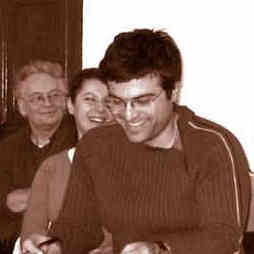 Patsavos Nikolas / Adjunct Lecturer
Patsavos Nikolas / Adjunct LecturerBiography
Nikolas Patsavos (Athens, 1977) has studied architecture in AUThessaloniki and the AA (PhD Programme) being a scholar of many Greek and international foundations. Since 2003, he has been teaching architecture history and theory and design in London, Chania, Nicosia and Volos. He has been collaborating with research programmes conducted by the NTUAthens and TUC-Chania while his personal interests focus mainly on an attempt for an interdisciplinary analysis of the cultural conditions of modernist (architectural) identity as well as the epistemology and history of architectural education.
e-mail
control.space.gr gmail.com
gmail.com
Telephone
6930360043



 hide projects
hide projects